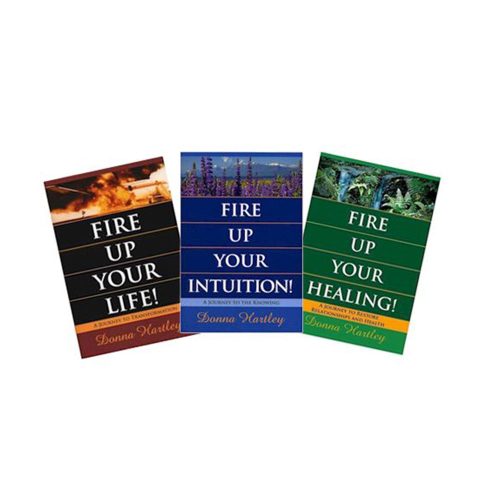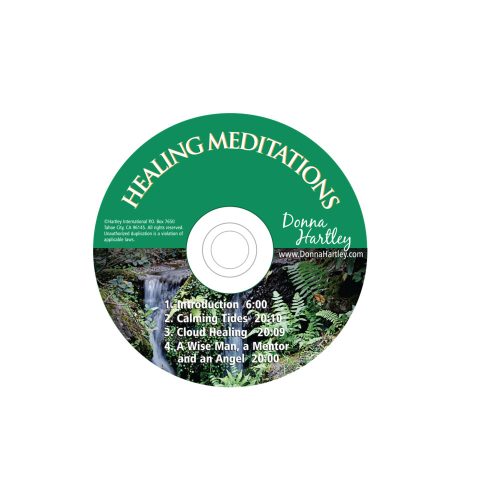Three Lifetimes, One Soul
A Quest for Freedom and Love
By Donna Hartley
Some lessons take more than one lifetime to learn. Some wounds are so deep, so entangled with history and love, that the soul must return again and again to find its voice, its freedom, and its peace. This is the story of one such soul, whose cry for liberation echoes through three lives. A vow made in pain and fire becomes the thread that stitches centuries together. A call not only for her people, but for her own healing.
First Lifetime: The Girl of the Coast
She was just a girl, just fourteen, by the shore… her feet in the wet sand, eyes scanning for shells for her upcoming ceremony. She was promised in marriage. Her heart was full of hope and anticipation. She was to marry the chief’s son. But fate, cruel and silent, watched as she strayed too far. In the shadows, slave hunters waited. Her screams, raw and desperate, were swallowed by the crashing waves and dense forest.
The hold of the slave ship was a hell beyond imagination. Wooden grates, iron shackles, the stench of sickness and death. She was packed tightly with others, sobbing in different tongues, languages that still cried for home. The voyage broke bodies and spirits alike. She watched mothers cradle dead infants, men collapse from fever, and young girls and boys scream until their voices gave out.
When her time came, feverish, weak, and starving, her final breath was not a whisper but a roar: “Let my people go”! The cry ripped from her throat, rising above the creaking wood and rolling waves. And as her body was thrown overboard, her soul rose above the ship. Floating, disembodied, she could see the truth. She understood, for a moment, the suffering, the pattern, the anger buried deep inside her.
But her heart still burned with resentment, still clung to unworthiness. She hadn’t saved anyone. Why hadn’t she paid more attention instead of dreaming of her future? She hadn’t even saved herself.
In-Between the Worlds
In that liminal place between lives, she pled with the angels and her spirit guides, “How do I unbind my people without being bound myself? How do I know love when all I’ve known is loss”? She asked to be born into a life that could show her another way. Her soul, still echoing with her death cry, chose a path of peace. She was born again, this time into a family that preached love and nonviolence.
Second Lifetime: The Abolitionist’s Daughter
In early 1800s Pennsylvania, she was born as Prudence, a pale-skinned Quaker girl west of the town of Bethlehem. Her family, devout and fervently against slavery, lived by the principle that all people are equal before God. Her older brother helped conduct on the Underground Railroad, but when he was struck with illness, it was Prudence who stepped forward.
Barely more than a girl, she drove a wagon with hidden compartments beneath hay, her heart racing, hands tight on the reins. The route was long and dangerous. When bounty hunters stopped her, she trembled in fear, until a rifle cracked in the distance. A stranger, not of her faith, not of her world, saved her.
He had a lawless aura but a gentle heart. He took her to his farm, fed the terrified people in her wagon, calmed her with stew and soft words. Even his dog wagged its tail in welcome. Prudence had been taught to fear men like him, worldly, rugged, unrestrained. Yet he made her feel seen. Safe. Loved.
Their connection deepened with each secret mission, each saved life. Around fires, he coaxed laughter from her. He gave her a puppy that curled against her feet, trotted after her and made her giggle. For the first time, she knew what it meant to be cherished.
But the world would not allow it. Her stern, God-fearing father arranged for her to marry a rigid, joyless Quaker boy. A union of duty, not love. The thought suffocated her. Her heartbreak seeped into her bones. Fever overtook her. She fell ill, bedridden and aching, not just from disease, but from the soul-deep despair of being torn from a love that could never be.
However, the man from the woods came to her when she didn’t reappear on her route. He burst through their door, despite her family’s protests, carried her into the sunlight, and laid her beside the dog she loved. He stayed by her side until the end, whispering love as she slipped away before her 19th birthday. At her gravesite, he returned each year, laying flowers where her body rested, and her spirit lingered.
A Soul Still Unfinished
Looking down on her grave, Prudence understood she had helped, had loved, but not enough. Her vow, once shouted in fury, had shaped her destiny again. She was learning, but not yet whole. In that lifetime, she had tasted freedom and love but had not fully claimed them. Her soul cried again.
“How many lifetimes does it take to complete an assignment”? she asked.
“As many as it takes”, came the silent answer.
Her In-Between Life
Her in-between life seemed so simple, so pure. Communication with other souls was telepathic, transparent and immediate. No one lied because everyone could read each other’s thoughts. There were guides, angels, mentors, ascended masters, and family souls who lovingly helped her review her past lives and choose her next journey. There was no judgment, only love, the unwavering support to fulfill the soul’s mission.
Each soul’s next incarnation is a personal choice. She now chose where to be born, who her parents would be, and what she wished to experience. The greatest value lay not in the circumstances, but in the insights gained, resilience, service, non-judgment, and unconditional love.
After much reflection, she decided to return to Earth as a female once again. At first, she wondered if being a man might offer more influence, more freedom to change the world. She also hesitated, Earth was dense, heavy with fear, lies, and greed. But her guardian angel encouraged her to return, not out of punishment, but to deepen her compassion, wisdom, self-reliance, and the sacred act of listening to her intuition.
Her last breath in her first life had been a cry: “Let my people go”! That powerful declaration lingered in her soul. Unfinished. The unresolved energy coursing through. She had to return to complete it. Souls carry with them the emotions and intentions of their dying breath; she thought to herself, maybe this time, I’ll whisper something softer. Something like love.
And as if the voice of her higher self-answered, this time, forgive the ones who hurt you. And forgive yourself for not being perfect. Heal through love and forgiveness.
Easier said than done, she thought. But still, she chose to go back.
Third Lifetime: From Philadelphia to the Unimaginable
Sarah sat upright in a straight-backed chair in a modest colonial parlor in Philadelphia. Her father’s uncle was away in Washington, caught up in the talk of war that loomed on every street corner. She sipped her tea slowly, the silence pressing in around her. How different life could have been had her parents not died when she was twelve. Raised by her great aunt and uncle, steeped in rigid Christian values, Sarah had known more sermons than embraces. At eighteen, her aunt Elizabeth was determined to marry her off to a good Christian man.
Then the Civil War broke out, April 12, 1861, and everything changed.
A tall, charming gentleman came to visit her uncle. He was older, well-dressed, and carried himself with assurance. Sarah and the stranger felt an immediate, almost fated connection. Within two weeks, she was married and headed south to Richmond, Virginia, to her new husband’s home.
What greeted her there was not the dream she imagined. His home was not a home, but a plantation with slaves. Her husband was not a protector, but a cruel drunk, rude, controlling, and violent. Within six months, Sarah was trapped. She had no voice, no freedom. The walls around her became her prison. He raped her as he did other women on the plantation. Pregnant and hopeful once, she lost the baby during one of his violent rages.
One night, bloodied and bruised, Sarah reached for her knitting needles on the nightstand. She just wanted him to stop. With all her might, she plunged one into his neck. His body slumped, lifeless. Blood pooled around them. And then… silence.
It was the slaves who saved her. Quietly, they buried the body, crafted a story of sudden illness, and urged her to stay strong. She donned black and played the role of the grieving widow. No one questioned it; survival through the war consumed everyone’s attention. These people became her silent guardians. They sang songs of solace and rebirth while working the fields, stirring pots over fire, and gathering in moments of stolen joy. Their voices carried the promise of deliverance. As their melodies rose, they soothed her restless spirit. Strangely, in their songs, she felt something familiar, a comfort that reached beyond this life, knowledge that she had heard those notes before.
Day by day, Sarah grew stronger. Quietly, she forged documents to free the slaves, signing her husband’s name. She taught them to read, to write, to shoot, skills her father and mother once taught her. Sarah worked on dividing the land into small parcels of land for the now former slaves. The plantation became a sanctuary for runaways and deserters from both sides of the war. No fighting was allowed, only rest, healing, and survival.
A few of the former slaves, though now free, became her advisors. They met, making decisions as equals. Their goal was to survive the war. One day, two near-dead Union brothers arrived at her doorstep. Nursed back to life over long months, they eventually returned home in disguise, escorted by a freed couple posing as their servants, dressed in her husband’s fine clothing.
The plan worked. Their wealthy father sent back wagons filled with supplies: food, seeds, and clothing. Hope.
But it was never easy. Sarah helped work the fields, patched torn clothes, and protected what little they had. When Union soldiers arrived to pillage her supplies, she met them on the porch with a rifle. Behind her stood her allies, the men, women, and children she had freed, rifles raised from the rooftop.
She offered the soldiers watered down soup and bread, but they would take nothing else.
One officer stayed two days longer waiting for supplies to arrive as the army marched on. He talked with Sarah throughout the night. He hated the war, and she believed him. When they left, three of her community followed them into the Union ranks.
The war finally ended. Months later, that same officer was carried into her yard, barely alive. For six months, she nursed him back to health. A bond grew between them. One day, she saw him ride a horse and hold his rifle, and something stirred in her memory. She then saw a half-alive bedraggled, dirty mutt wander in. Not surprising to her the dog became inseparable to the man. An odd feeling once again came over her, something seemed familiar.
Had she known him before? Another lifetime perhaps?
Meanwhile, her chosen family were just starting to rebuild their broken lives. So much sadness and healing to overcome. They built a small home on their given land, harvested crops, and raised their children free.
Three wagons then pulled up. The Union brothers had returned, with their father and others in tow. They brought tools, food, animals, and supplies to rebuild the home and land. This was truly a blessing.
That night, they celebrated life. Freedom. A new beginning.
Sarah married the Union officer. And for the first time, she felt safe. Not just because he loved her, but because she loved herself. She had survived. She had not remained a victim. She had claimed her voice, her strength. She had freed others, but most importantly, she had freed herself.
From My Heart to Your Heart
I not only share this story, but the lessons learned through it: that even when life seems cruel, the soul remembers its own song. Each of us carries echoes of other lives, moments of sorrow and hope stitched into our bones. These echoes are meant to teach us how to love ourselves and each other. If you hear the faint sound of crying across time, know that it is the soul’s longing for freedom and connection, urging you to be kind to yourself and others.
As I forgive myself and those who hurt me, the chains around my heart fall away. I understand now that every person I have met in past lives, even those who caused me pain, helped me grow wings. There is no shame in the tears of the past, no failure in the struggles of life. They have made you who you are: a soul rising from the darkness into light.
How to Understand Your Past Lives
There are two main ways to begin understanding your past lives.
The first is to have a past life reading session. Look for patterns that connect your previous lives to your current one, whether they come through as natural gifts, recurring challenges, or clues to your life’s purpose. Make sure these insights resonate with your present experiences.
The second way is more intuitive. Everyone has gut feelings, start developing and trusting yours. To do this, you need to support your body and mind. Reduce junk food to keep your brain sharp. Spend time in nature, breathe deeply, and connect with the earth. Grounding helps you stay centered.
Practice daily gratitude. Kindness and forgiveness towards yourself and others. Allow yourself emotional healing.
Meditation is a powerful tool for inner communication. Whether it’s silence, soft music, nature sounds, or guided meditation, make it a daily practice. Meditation sharpens your intuition. As you continue, you may begin to feel a deep knowing that you’ve lived somewhere before or feel connected to someone you’ve just met. Trust those sensations.
This is a gradual process. It takes time to raise your energetic vibration and tune in to your inner guidance. But as the saying goes: “If you don’t understand your past, you’re bound to repeat it”.




